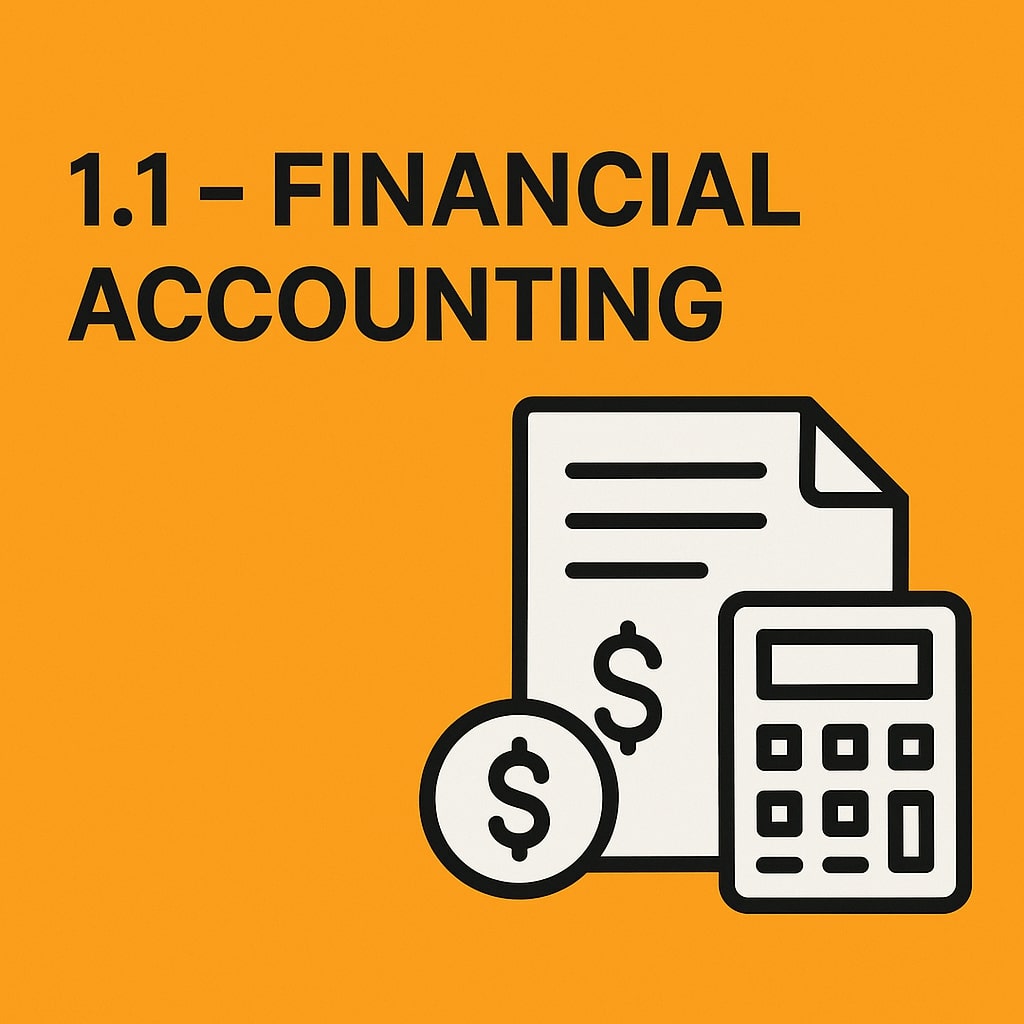The Financial Accounting module is part of the Knowledge Level (Level 1) in the ICAG professional qualification syllabus. It focuses on developing knowledge of underlying principles, double-entry accounting techniques, and preparation of basic financial statements. Below is the syllabus coverage presented in tabular form, including the main topics and their approximate weightings (guiding study time and exam mark allocations)
| Syllabus Topic | Description | Weighting (%) |
|---|---|---|
| A. The context, purpose, and qualitative characteristics of financial information, and ethics | Explains the scope, users, regulatory framework, elements, qualitative characteristics of financial statements, and ethical requirements. | 5 |
| B. Recording transactions and events | Covers sources of information, recording revenue/income, costs/expenses, assets, liabilities, equity, and preparing a trial balance. | 20 |
| C. Correcting errors and performing reconciliations | Involves identifying errors, using control accounts, bank reconciliations, suspense accounts, journals, and preparing an extended trial balance. | 20 |
| D. Preparing basic financial statements | Includes preparing profit or loss accounts, statements of financial position, and cash flow statements for sole traders and simple companies. | 20 |
| E. Accounting for partnerships | Explains partnership nature, records transactions, prepares capital/current accounts, final accounts, and handles admissions, retirements, changes, and dissolutions. | 15 |
| F. Preparing accounts from incomplete records | Recognizes incomplete record situations, derives missing figures using ledger accounts, mark-up/margins, and applies professional skepticism. | 10 |
| G. Introduction to public sector financial statements | Identifies differences between public and private sector accounting. | 5 |
| H. Key accounting ratios | Calculates basic accounting ratios for performance analysis. | 5 |


